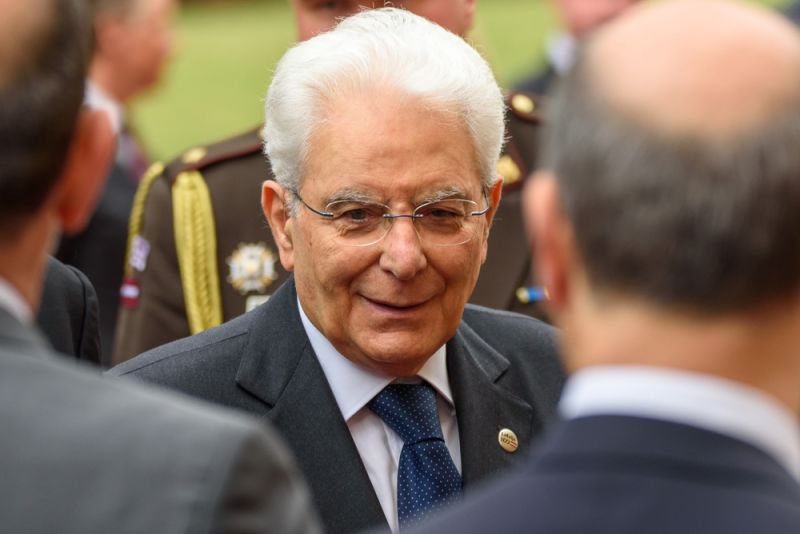Italy: Parliament to start voting for new president on January 24

Rome: The Italian parliament is to convene on 24 January to begin the process of voting for a new president of Italy to replace Sergio Mattarella whose seven-year term of office ends on 3 February.
The news was announced on Tuesday by the lower house speaker Roberto Fico who summoned more than 1,000 parliamentarians and regional representatives to vote for a new head of state.
The main contenders for the role are Italy’s current prime minister Mario Draghi, 74, seen as the favourite, and four-time former premier Silvio Berlusconi, 85, who has support from the centre-right parties.
Other possible contenders include former premier Giuliano Amato, current justice minister Marta Cartabia, and former lower house speaker Pier Ferdinando Casini.
However there are no official candidates, and lawmakers can vote for literally anyone they like, provided they are an Italian citizen aged 50 or over.
The president of Italy is elected by both houses of parliament in joint session plus three representatives from each region (apart from Valle d’Aosta which only has one).
The voting is held in secret and a two thirds majority is needed on the first three ballots and then after that by an absolute majority.
A move by Draghi to the Quirinale palace would risk political turmoil, either triggering elections a year ahead of schedule or resulting in the installation of a new premier.
The timing is seen as delicate as Draghi’s national unity government grapples with covid-19 and implements the EU’s multi-billion post-pandemic recovery fund.
Although largely ceremonial, Italy’s president plays a key role during times of political crisis and has the power to appoint a prime minister, as seen when the executive of former premier Giuseppe Conte collapsed almost a year ago, paving the way for Draghi’s broad coalition government.
Draghi has long been touted as Italy’s next president and, despite never expressly saying so, has made it clear he would be willing to switch from prime minister to head of state.
Speaking at an end-of-year news conference before Christmas the former European Central Bank chief said: “My personal destiny is of no importance, I have no particular ambitions. I am, if you like, a grandfather at the service of the institutions.”
However Draghi stressed it was “essential” for the current coalition to stay intact until the scheduled end of the parliamentary term in 2023.
Voting for the new president is expected to take several days, and the term of office is seven years.





